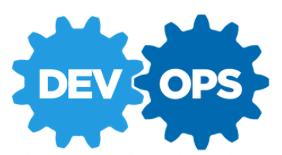Service Providers Jump on DevOps Bandwagon

The rush to fill what many see as a DevOps gap continues as the growing need for development skills shifts from the datacenter to the enterprise.
A recent study released by market researcher Gartner is being widely cited as supporting the creation of new DevOps capabilities. The Gartner survey predicted that "DevOps will evolve from a niche strategy employed by large cloud providers to a mainstream strategy employed by 25 percent of Global 2000 organizations" by as early as 2016.
In response to the growing demand for DevOps capabilities in the enterprise, companies are launching new services designed to meet the need. The latest example comes from WSM International, which specializes in web and data migration services. WSM announced this week the launch of a DevOps services practice to help large enterprises adopting hyper-scale infrastructure make the transition to the DevOps model.
WSM, St. Claire Shores, Mich., claims to be the first independent services company to launch a dedicated consulting practice aimed at helping enterprises make the transition to in-house DevOps. The "DevOps practice is the natural next step in transitioning IT infrastructure," the company said.
Enterprises are increasingly seeking DevOps services as they expand their IT infrastructure. According to WSM, a recent customer deployment leveraged clustering technology and a streamlined application and database infrastructure to reduce the total number of servers from 200 to 60.
Companies like WSM offer proficiency in a variety of DevOps tools including Puppet, Chef and Saltstack. These tools are geared toward helping enterprises automate the deployment and management of their IT infrastructure.
The recent Gartner survey on the transition to enterprise DevOps noted that it is fueling demand for toolsets like Chef and Puppet along with the engineering skills needed to implement them.
Indeed, emerging tools like Chef are allowing enterprises to manage systems more efficiently. Chef is a systems and cloud infrastructure framework designed to make it easier to deploy applications, workloads and servers to a physical, virtual or cloud environment.
In broader terms, the adoption of tools like Chef and Puppet reflect how the barriers between application development and system administration are breaking down. A key reason is the artificial wall between development and production environments that has persisted in the datacenter, making it harder for IT departments to adapt applications to changing business conditions.
While emerging players like WSM are stressing automation, testing and an expanding DevOps toolset, others who have long been in the DevOps trenches insist it is more than a set of tools. In a commentary for EnterpiseTech, DevOps industry veteran Todd Vernon insisted that the notion of DevOps is merely "a collection of best-of-breed tools that are glued together to meet the current demands of engineering…sells the vision short.
"Tools for DevOps teams will consume the development tools and technical operations space until building and operating are the same thing," Vernon argued. "Ultimately, it’s all just DevOps."
Combined or separate, Gartner forecasts that demand for DevOps toolsets could grow to $2.3 billion this year as DevOps shifts from a niche to a "mainstream strategy."
Related
George Leopold has written about science and technology for more than 30 years, focusing on electronics and aerospace technology. He previously served as executive editor of Electronic Engineering Times. Leopold is the author of "Calculated Risk: The Supersonic Life and Times of Gus Grissom" (Purdue University Press, 2016).










